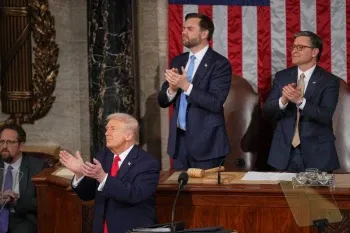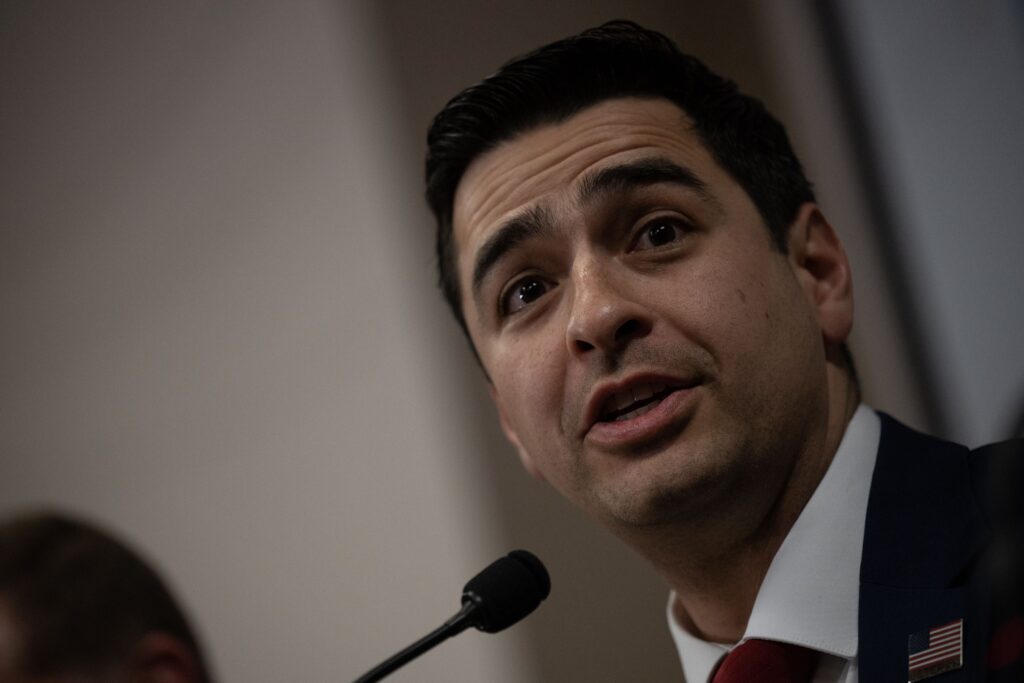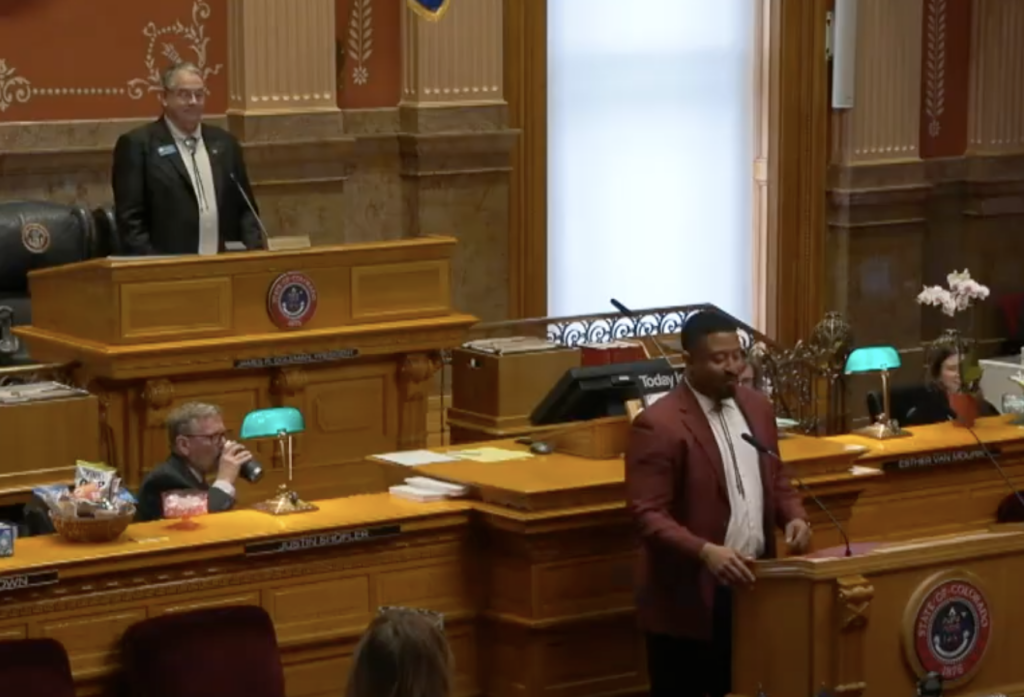PERA bill draws fiery testimony from Treasurer Stapleton and talk of ‘gray-hairs’
A hearing this week aimed at modifying the composition of the PERA board devolved into attacks by Treasurer Walker Stapleton and a discussion over the role of older Coloradans.
Stapleton, a Republican, testified on Senate Bill 158, which would restructure the board in an effort to bring greater accountability and performance.
The bill passed the Senate Finance Committee on a party-line vote, with Republicans backing the proposal. The bill now heads to the full Senate for consideration. If it passes the Senate, the bill faces an uphill battle in the Democratic-controlled House.
Stapleton, who is considering a run for governor in 2018, has long been at odds with the PERA board, raising concerns over the stability of the pension fund for state employees.
The $47 billion, 300-employee retirement system has faced criticism, especially given its $30 billion unfunded liability, which is money PERA will owe in the future but currently does not have in its accounts. The system serves more than 547,000 members.
Stapleton offered fiery testimony in support of the bill, suggesting that the board suffers from mismanagement, evidenced in part by poor attendance. At one point, the 42-year-old treasurer questioned the role of Coloradans approaching retirement.
“We don’t need a bunch of gray-hairs,” Stapleton said. “When changes are made to PERA’s funding structure, most of the bloodletting and most of the sacrifice will be made by newer PERA members and younger PERA members who are just starting their careers.”
Sen. Andy Kerr, D-Lakewood, took offense at the suggestion: “I appreciate a little gray hair, a little maturity, in many of my constituents, especially those who are PERA members or PERA retirees, because they actually spent time in the system.”
Stapleton added that he was hoping to bring some “levity” to the discussion.
The bill would require at least one elected board member from both the state division and the school division to be at least 20 years from retirement eligibility.
It also would eliminate one elected member trustee position from the state division; eliminate two elected member trustee positions from the school division; and add three more trustees appointed by the governor and confirmed by the Senate who are not PERA members or retirees and who are experts in finance.
Currently, the PERA board is comprised of 15 trustees: The state treasurer, three elected members of the state division, four elected members of the school division, one elected member of the local government division, one elected member of the judicial division, two elected retirees, and three trustees appointed by the governor and confirmed by the Senate who are not PERA members or retirees. There is also one ex officio trustee from the Denver Public Schools division.
The bill would not change the inclusion on the board of the state treasurer, the elected members from the local government decision and the judicial division, or the ex officio trustee from the Denver Public Schools division.
The treasurer recently lamented a raise for PERA chief executive Greg Smith, who received a 3 percent salary increase – his second raise in just over a year – bringing his salary to nearly $406,000 in 2017.
Smith also was given an incentive payment of 20 percent for leading the retirement system, which amounts to nearly $79,000.
The vote on the bonus was 7-3, though five board members were absent.
“I’ve been around a lot of boards in my day, and I’ve never once attended a board meeting where a full third of the board members don’t even show up to a bonus vote on the CEOs compensation,” Stapleton said.
Smith pointed out, however, that his overall contract was approved by every vote on the board except for one.
But Stapleton said when it came to the bonus, “I found it odd that the board initially voted for his pay package and then five of the 15 board members didn’t even show up for the discussion and approval of his bonus. That’s not exactly a ringing endorsement.
“PERA is the largest unfunded liability that we have here in the state of Colorado and changing the corporate governing structure would do a great deal to address that.”
Stapleton faced his own criticism over attendance. When he ran for re-election in 2014, ads ran accusing the treasurer of not showing up for work. The claims used “official key card records” for the Capitol, though those accusations were never credibly confirmed.
Kerr attempted to run an amendment during the hearing that would have held the treasurer accountable to his attendance record on the board. But the effort failed.
PERA last year lowered its assumed investment rate of return from 7.5 percent to 7.25 percent, which increased its unfunded liability from nearly $27 billion to $30 billion.
The state saw only a 1.5 percent return on retirement investments in 2015, though Smith says the overall return on investment outperformed a PERA benchmark for anticipated return and the median return for public funds.
The 1.5 percent return at the time fell well short of PERA’s assumed investment rate of return at that point of 7.5 percent. Under the projections, it would take PERA more than 40 years to be fully funded.
PERA distributed about $4.3 billion in 2015 to retirees.
Lynea Hansen, executive director of Secure PERA, which represents more than 200,000 PERA members, opposed the bill, suggesting that the board does a good job managing interests.
“That sort of idea that these folks cannot step back from their own interests, I don’t think is well founded,” she said.










